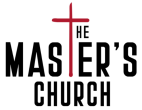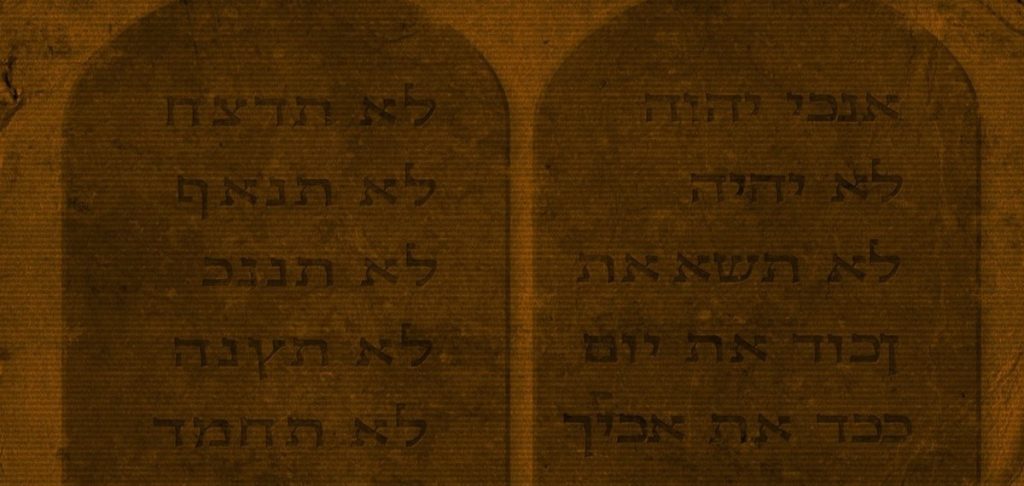The word “covenant” is used over 300 times in the Bible and is a very important word in understanding how God deals with His people. In the Old Testament the word covenant comes from the Hebrew word “berit,” which means a treaty, a compact or agreement made between two parties bound together with various responsibilities and benefits. In the New Testament the word is exclusively translated from the Greek word “diatheke,” which carries the same idea as the Old Testament word, but can also refer to the last will and testament of a deceased person.
Focusing on the biblical covenants that God made with His people, there are at least five mentioned in the Bible. The biblical covenants form the unifying thread of God’s saving action throughout history. The first explicit covenant mentioned in Scripture is between God and Noah after the Flood. The Noahic Covenant is an unconditional promise from God that He will not destroy the earth with a flood again (Genesis 9:11). The Flood destroyed all but eight people on earth and the animals that were gathered in the Ark. Noah sent out a dove to see if there was any land left on the earth, and in time, the dove returned to Noah with an olive leaf to signify that the water was receding and plant life started to grow. The sign of the Noahic Covenant is the rainbow (Genesis 9:16-17). It emphasizes the preservation and dignity of human life as seen in the institution of capital punishment (Genesis 9:6).
The Abrahamic Covenant is another unconditional promise by God given this time to Abraham, Isaac, Jacob, and his posterity consisting of blessings, a special nation, and a land. The sign of this covenant is circumcision (Genesis 17:11). That Promised Land that would eventually be inhabited by Jewish People on earth. God spoke to Abraham in Genesis 12:2-3, 2 I will make you a great nation; I will bless you and make your name great; and you shall be a blessing. 3 I will bless those who bless you, and I will curse him who curses you; and in you all the families of the earth shall be blessed. All of this came to pass except the full possession of the land promise to the nation of Israel, which will only be fulfilled when Christ returns to set up His Kingdom on earth (Genesis 13:14-17; Amos 9:13-15).
The Mosaic Covenant was a theocratic law code specifically for Israel (Exodus 19:5-8). It was conditioned upon obedience and ultimately fulfilled in Christ’s blood atonement. The civil and ceremonial aspects of the Mosaic Law are no longer binding upon the New Testament Church (Romans 6:15). Christ has fulfilled the Old Covenant through His perfect obedience and sacrifice, freeing us from the curse of the law (Galatians 3:13).
The fourth Covenant in Scripture is the Davidic Covenant. God established a covenant with King David promising David and his lineage would rule over Israel forever (2 Samuel 7:12-16). This covenant with King David and his lineage foreshadowed David’s greater Son the Lord Jesus Christ Who would be the ultimate King Who rules over His people (Luke 1:32-33).
The final and most glorious of all the Covenants is the New Covenant. It was first expressed in prophecy in Jeremiah 31:31-34, inaugurated at the Last Supper in Matthew 26:28 and fulfilled when Jesus died on the cross as expressed in Hebrews 9:15. The New Covenant represents God’s promise to redeem and forgive the sins of His people, placing those sins upon Christ at the cross, and crediting His righteousness to them through repentance and faith in His person and work. God has done more than we can ask or think. It is reason to appreciate Christ more than ever as we live out our charter of freedom in the New Covenant.
Scripture Reference
“I establish My covenant with you; and all flesh shall never again be cut off by the water of the flood, neither shall there again be a flood to destroy the earth.”
16 “When the bow is in the cloud, then I will look upon it, to remember the aeverlasting covenant between God and every living creature of all flesh that is on the earth.”
17 And God said to Noah, “This is the sign of the covenant which I have established between Me and all flesh that is on the earth.”
Whoever sheds man’s blood, by man his blood shall be shed, for in the image of God He made man.
And you shall be circumcised in the flesh of your foreskin, and it shall be the sign of the covenant between Me and you.
14 The Lord said to Abram, after Lot had separated from him, “Now lift up your eyes and look from the place where you are, northward and southward and eastward and westward;
15 for all the land which you see, I will give it to you and to your 1descendants forever.
16 “I will make your 1descendants as the dust of the earth, so that if anyone can number the dust of the earth, then your 1descendants can also be numbered.
17 “Arise, walk about the land through its length and breadth; for I will give it to you.”
13 “Behold, days are coming,” declares the Lord,
“When the plowman will overtake the reaper
And the treader of grapes him who sows seed;
When the mountains will drip sweet wine
And all the hills will be dissolved.
14 “Also I will arestore the 1captivity of My people Israel,
And they will brebuild the ruined cities and live in them;
They will also cplant vineyards and drink their wine,
And make gardens and eat their fruit.
15 “I will also plant them on their land,
And they will not again be rooted out from their land
Which I have given them,”
Says the Lord your God.
5 ‘Now then, if you will indeed obey My voice and keep My covenant, then you shall be My 1own possession among all the peoples, for all the earth is Mine;
6 and you shall be to Me a kingdom of priests and a holy nation.’ These are the words that you shall speak to the sons of Israel.”
7 So Moses came and called the elders of the people, and set before them all these words which the Lord had commanded him.
8 All the people answered together and said, “All that the Lord has spoken we will do!” And Moses brought back the words of the people to the Lord.
What then? Shall we sin because we are not under law but under grace? May it never be!
Christ redeemed us from the curse of the Law, having become a curse for us—for it is written, “Cursed is everyone who hangs on a tree”
12 “When your days are complete and you lie down with your fathers, I will raise up your descendant after you, who will come forth from you, and I will establish his kingdom.
13 “He shall build a house for My name, and I will establish the throne of his kingdom forever.
14 “I will be a father to him and he will be a son to Me; when he commits iniquity, I will correct him with the rod of men and the strokes of the sons of men,
15 but My lovingkindness shall not depart from him, as I took it away from Saul, whom I removed from before you.
16 “Your house and your kingdom shall endure before Me forever; your throne shall be established forever.”
32 “He will be great and will be called the Son of the Most High; and the Lord God will give Him the throne of His father David;
33 and He will reign over the house of Jacob forever, and His kingdom will have no end.”
31 “Behold, days are coming,” declares the Lord, “when I will make a new covenant with the house of Israel and with the house of Judah,
32 not like the acovenant which I made with their fathers in the day I btook them by the hand to bring them out of the land of Egypt, My ccovenant which they broke, although I was a husband to them,” declares the Lord.
33 “But this is the covenant which I will make with the house of Israel after those days,” declares the Lord, “I will put My law within them and on their heart I will write it; and I will be their God, and they shall be My people.
34 “They will not teach again, each man his neighbor and each man his brother, saying, ‘Know the Lord,’ for they will all know Me, from the least of them to the greatest of them,” declares the Lord, “for I will forgive their iniquity, and their sin I will remember no more.”
for this is My blood of the covenant, which is poured out for many for forgiveness of sins.
For this reason He is the mediator of a new covenant, so that, since a death has taken place for the redemption of the transgressions that were committed under the first covenant, those who have been called may receive the promise of the eternal inheritance.
Studies You May Also Find Interesting:

Apocrypha
In the Roman Catholic and Eastern Orthodox Bibles there are additional books listed for the Old Testament. Those additional books

Incarnation: God Becoming a Man
The Incarnation of Jesus Christ is the core meaning of Christmas. While the Bible does not use the exact term

Love: The Greatest Virtue
Love is the priority virtue in the New Testament that believers possess. 1 Corinthians 13:13, Now abide faith, hope, love,

